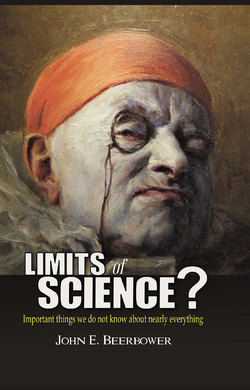Читать книгу Limits of Science? - John E. Beerbower - Страница 53
На сайте Литреса книга снята с продажи.
“Physics envy”
ОглавлениеIn September 2010, The New York Times labeled as the “Idea of the Day” the views of columnist Gideon Rachman of The Financial Times that: “Economists would do well to learn the modesty of historians….” September 9, 2010. Mr. Rachman warned about economists (pointing to Nobel Prize winner Joseph Stiglitz) who, in the face of recent failures, would “simply search for ‘new paradigms’—and then presumably go back into the business of scientific prediction.” He noted, “With the exception of a few deluded Marxists, historians know that their work cannot be used to predict the future. History can suggest lessons and parallels and provide wisdom—but what it cannot do is provide a sociological equivalent of the laws of physics. Yet this seems to be the aspiration of many economists, who notoriously suffer from ‘physics envy.’” FT.com, 6 September 2010.
The same theme appeared in an opinion column by political scientists Kevin A. Clarke and David M. Primo a year and a half later. “Overcoming ‘Physics Envy,’” The New York Times, April 1, 2012, p.9. They assert that social sciences are suffering from the efforts to use the hypothetico-deductive method that has been idealized as “the” method of the hard sciences (formulate a theory, deduce testable empirical hypotheses from the theory, then test the hypotheses—if the evidence contradicts the prediction, then the theory needs to be rejected or revised; if it is consistent with the hypothesis, then the theory is deemed tentatively confirmed, or, perhaps more accurately, not yet disconfirmed). They argue that this model does not accurately represent even how the hard sciences are practiced, ignoring “everything messy and chaotic” that inevitably accompanies scientific inquiry.
More importantly, they argue that empirical testing and even empirical predictions are not necessary for “good science,” noting that many useful theoretical models help explain and enable us better to understand phenomena, even though they do not give rise to testable predictions or even, sometimes, where they are obviously false. (They also assert that the analysis of empirical data can be helpful even in the absence of a grand theory.) “To borrow a metaphor from the philosopher of science Ronald Giere, theories are like maps: the test of a map lies not in arbitrarily checking random points but in whether people find it useful to get somewhere.” Id.
Interestingly, during the late nineteenth and early twentieth centuries, successes at incorporating mathematical methods of analysis into increasingly elaborate deductive theories, in models that bore striking similarities to classical mechanics, led economists increasingly to identify themselves as different from and superior to the other social sciences. Thus, in 1891, John Neville Keynes, the father of John Maynard Keynes (in turn, the father of “Keynesian economics”), quoted Alfred Marshall as saying: “It is vain to speak of the higher authority of a unified social science. No doubt if that existed, economics would gladly find shelter under its wing. But it does not exist; it shews no sign of coming into existence. There is no use waiting idly for it; we must do what we can do with our present resources.” The Scope and Method of Political Economy (1891), p.110.
Keynes himself observed: “Students of economics may, moreover, naturally and fairly ask to have the province of sociology itself more explicitly defined, and to see its own fundamental doctrines more clearly formulated, before they can be expected to show a willingness to have political economy subsumed under and absorbed into it.” Id., p.134.
